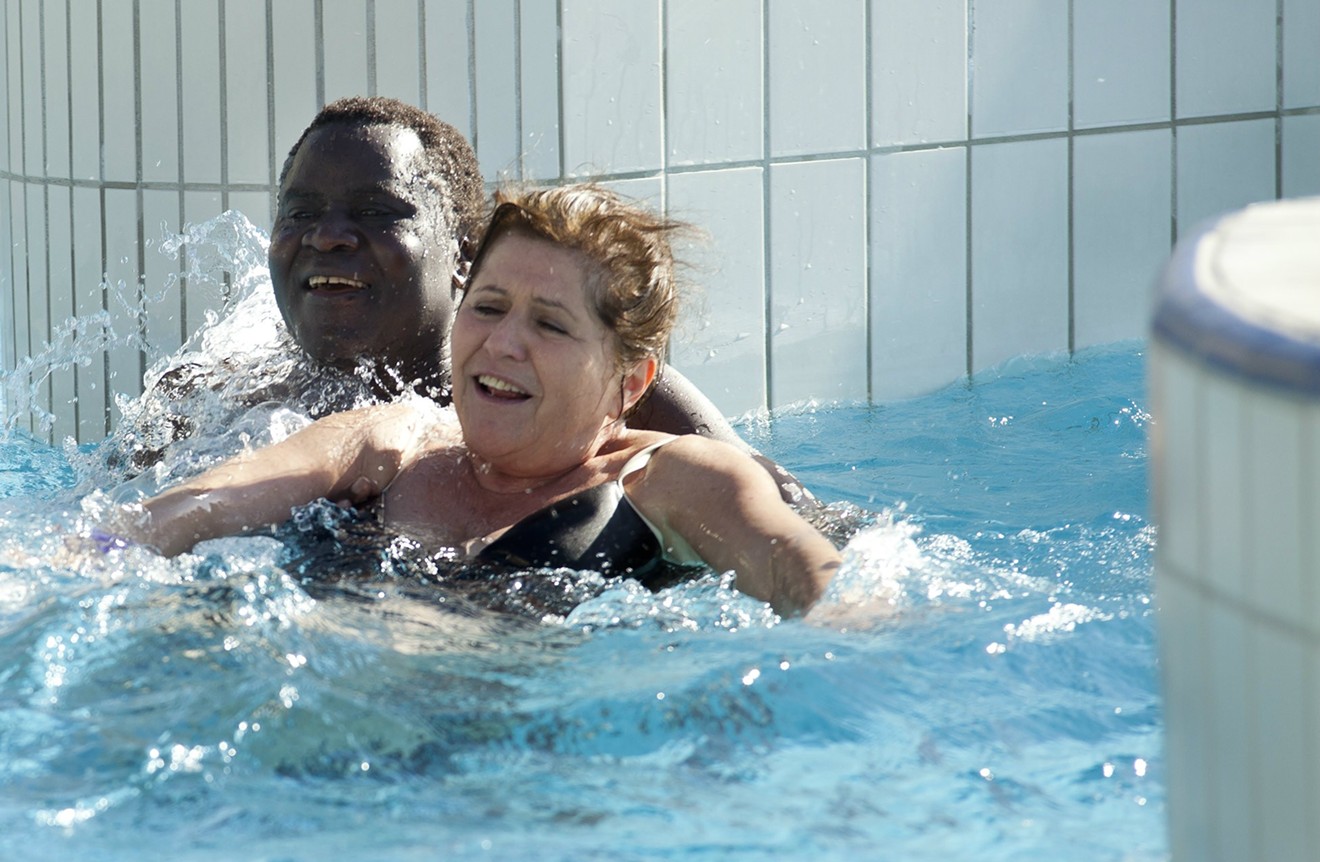Roland Vranik’s quietly outraged, scrupulously observant immigration drama The Citizen may unfold in Hungarian, in the streets and flats and bureaucratic offices of Budapest, but its story could be transposed to any American city with just a language swap and a find-replace of some proper nouns. Its concerns are local – singled out for consideration are Hungary’s celebration of its violent history, the ignorance and xenophobia of some of its citizens, the opacity and severity of its naturalization system and immigration laws – but the highly specific tensions it dramatizes wrack most Western democracies. Vranik’s film couldn’t be more timely in its moral inquiry, but it’s timeless in form and technique, a melodrama tempered with a painstaking realism. By foregoing sensationalism, The Citizen becomes both sweeter, in its conjuring of a first kiss and a surprise romance, and also by the end more devastating. Simply put, the lives Vranik puts onscreen are wholly convincing, and the conflicts they face sadly familiar.
Vranik’s tale concerns middle-aged Wilson (first-time actor Marcelo Cake-Baly), a political refugee from Guinea-Bissau, and his complex relationships with two women from two different cultures who come to share his small apartment. First is fellow refugee Shirin (Arghavan Shekari), a young Iranian woman who turns up at his door nine months pregnant and fleeing a government committed to deporting her. Convinced that he’s just one test away from gaining citizenship, Wilson, a security guard at a grocery store, takes her in, helps her give birth and forms with mother and child a warm paternal bond. Shirin knows that when he proposes a “paper marriage” to her that he means precisely that: He’ll get his citizenship and then make her legal, too, without any romantic expectations.
He does develop such hopes for Mari (Ágnes Máhr), the age-appropriate Hungarian woman he’s hired to tutor him for his citizenship test. She’s married, with grown children, but adrift; her face seems to blossom open when Wilson’s around, like his attention is the sunlight she’s been missing. She contrives outings to museums and public squares as lessons, and eventually Wilson, a beaming charmer, makes his move. The moment is tense, exquisite, gently comic — my pick so far for this year’s best screen smooch.
Together, Wilson and Mari will face bureaucracy, prejudice and their own divergent expectations about what a life between them could look like. Between vigorous dancing and ecstatic lovemaking, they’ll also face the question of what to do about Shirin and the baby. Mari pushes the refugees to behave like they’re citizens already — to call a doctor when the baby is sick, for Shirin to walk outside when the baby is crying. Shirin and Wilson, though, understand that the young mother must stay hidden. The Citizen never digs into what, exactly, Shirin has fled, but there’s no mistaking its horror. Wilson, meanwhile, speaks just once of the war-ravaged home he’s left behind, and of who he’s lost there; the scene is somehow both admirably restrained and a tear-summoning knockout.
Vranik eschews flourishes, telling his story with directness and clarity, though the film is never subtle. But neither are desperate lives or immigration laws. What resonates are the performances, the characters this cast of pros and non-actors fully inhabit, the abundance of complex, revealing interactions. Allow me to gush about the way Wilson beams through his days, his smile seemingly beatific, no matter what is thrown at him — until he doesn’t. Or the way Mari at first fights her attraction to Wilson but then eagerly gives him every signal to proceed. Or how she loses herself in bed with him and then swallows back her initial repulsion at every new revelation about his life with Shirin. Or at all the times we see her try to find her way toward acceptance. Or, most memorable of all, the way we see in her eyes well before the characters acknowledge that all those efforts won’t be enough.
[
{
"name": "GPT - Billboard - Slot Inline - Content - Labeled - No Desktop",
"component": "16971022",
"insertPoint": "2",
"requiredCountToDisplay": "2"
},{
"name": "Editor Picks",
"component": "15769925",
"insertPoint": "4",
"requiredCountToDisplay": "1"
},{
"name": "Inline Links",
"component": "16575154",
"insertPoint": "8th",
"startingPoint": 8,
"requiredCountToDisplay": "7",
"maxInsertions": 25
},{
"name": "GPT - Rectangle 2x - Slot Auto-select - Labeled",
"component": "15782206",
"insertPoint": "8th",
"startingPoint": 8,
"requiredCountToDisplay": "7",
"maxInsertions": 25
},{
"name": "Inline Links",
"component": "16575154",
"insertPoint": "8th",
"startingPoint": 12,
"requiredCountToDisplay": "11",
"maxInsertions": 25
},{
"name": "GPT - Leaderboard to Tower - Slot Auto-select - Labeled",
"component": "15782207",
"insertPoint": "8th",
"startingPoint": 12,
"requiredCountToDisplay": "11",
"maxInsertions": 25
}
]












